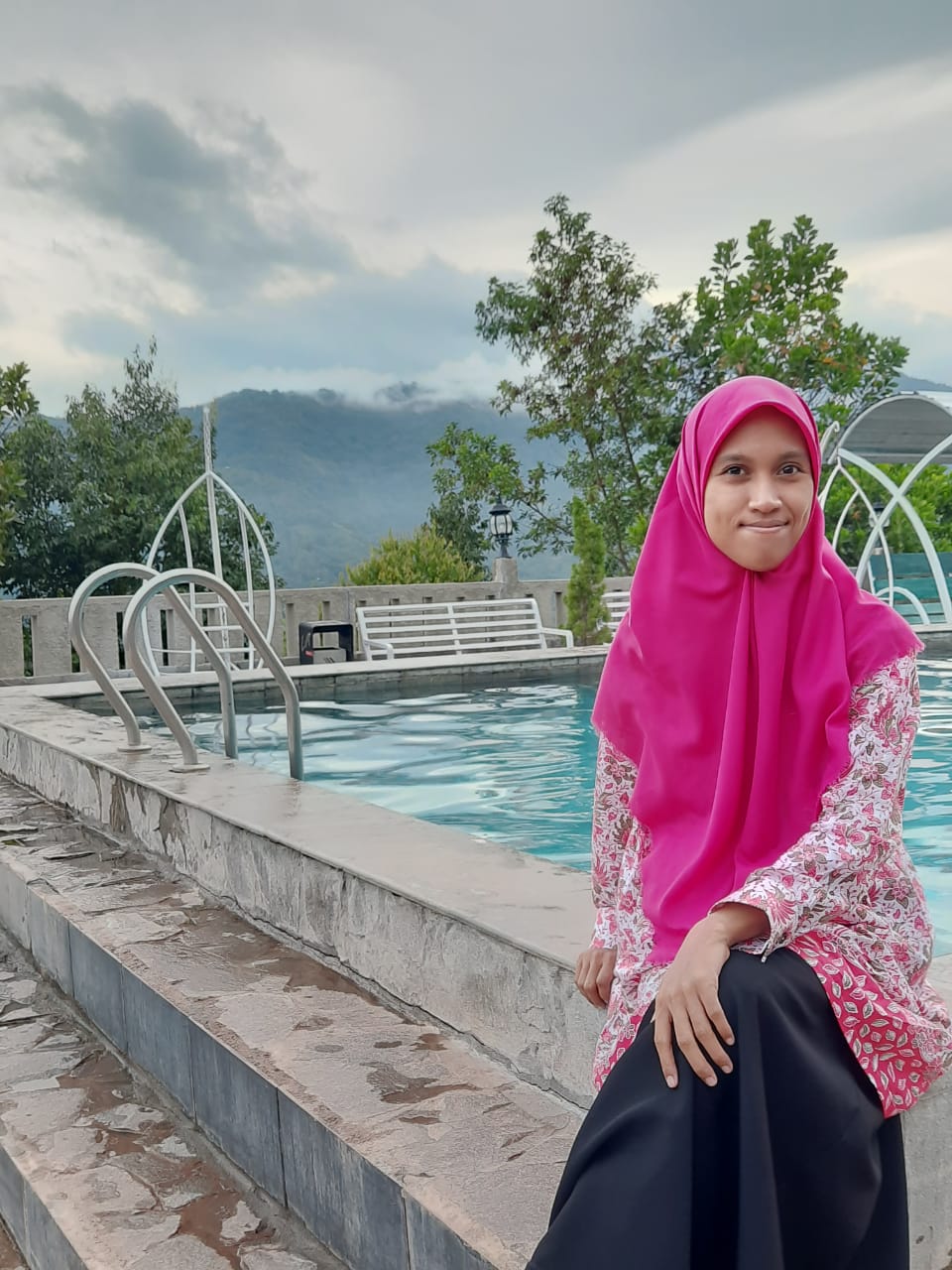Effective Professional Development on Teaching at Islamic Boarding School: English Teachers’ Perspective
DOI:
https://doi.org/10.46870/lets.v4i2.494Keywords:
Student Disruptive behavior, teacher perception, Islamic Boarding SchoolAbstract
The objectives of the research are to find out (1) English teachers’ perspective towards the criteria of effective teacher’s professional development activities, (2) professional development needs on teaching in Islamic Boarding School, and (3) English teachers’ barriers to participate teacher professional development activities. This study was designed as descriptive qualitative research. The subject of data in this research was English teacher in Islamic Boarding School. This research took ten English teachers as the participants of the research which is collected through purposive sampling. Data collection techniques used were interview and observation checklist. The results of the study indicated that (1) there were five criteria of effective professional development activity mentioned by the teachers in Islamic Boarding School. Those were a match to existing teacher needs, teacher involvement in the design/planning of professional development activity, active participation oppurtunities, long-term engagement, and high quality instructor. (2) It was also found six features the teacher perceived as professional development needs by the teachers. Those were content and performance standards, clasroom management, Intructional practice, ICT teaching skills, and student discipline and behaviour problem. (3) There were three barriers which fit the existing features, those were no suitable development, conflict with work schedule, family responsibilities, negative attitudes towards courses, and health problem. Besides that, the researcher also found three kinds of barrier that was not fit with the existing barriers, those are transportation problem, unavoidable condition, and unreachable information. Then, two participants expressed that they did not have any barrier to participate in professional development activities
References
Adem, B. (2014). The Components of Effective Professional Development Activities in terms of Teachers’ Perspective. IOJES.
Kusumaningrum, A., Suharno, and Triyanto. (2019). Professional Development of a Teacher in the ICT Era. International Seminar on Language, Education and Culture, KnE Social Sciences, 203-211.
Eroglu, D. K. (2021). rofessional Development Barriers of Teacher: A Qualitative Reserach. International Journal of Curriculum and Instruction. International Journal of Curriculum and Instruction, 13(2), 1896–1992.
Fernandez-Manzanal, R., Serra, L., Morales, M., Carrasquer, J., Rodriguez-Barreiro, L., del Valle, J., & Murillo, M. (2015). Environmental behaviors in initial professional development and their relationship with university education. Journal of Cleaner Production, 108, 830–840.
Garet, M. ., Porter, A. ., Desimone, L., Birman, B. ., & Yoon, K. . (2001). What makes professional development effective? Results from a national sample of teachers. American Educational Research Journal, 38(4).
Germuth, A. A. (2018). Professional Development that Changes Teaching and Improves Learning. Journal of Interdisciplinary Teacher Leadership (JoITL), 2(1), 77–90.
Adem, B. (2014). The Components of Effective Professional Development Activities in terms of Teachers’ Perspective. IOJES.
Kusumaningrum, A., Suharno, and Triyanto. (2019). Professional Development of a Teacher in the ICT Era. International Seminar on Language, Education and Culture, KnE Social Sciences, 203-211.
Eroglu, D. K. (2021). rofessional Development Barriers of Teacher: A Qualitative Reserach. International Journal of Curriculum and Instruction. International Journal of Curriculum and Instruction, 13(2), 1896–1992.
Fernandez-Manzanal, R., Serra, L., Morales, M., Carrasquer, J., Rodriguez-Barreiro, L., del Valle, J., & Murillo, M. (2015). Environmental behaviors in initial professional development and their relationship with university education. Journal of Cleaner Production, 108, 830–840.
Garet, M. ., Porter, A. ., Desimone, L., Birman, B. ., & Yoon, K. . (2001). What makes professional development effective? Results from a national sample of teachers. American Educational Research Journal, 38(4).
Germuth, A. A. (2018). Professional Development that Changes Teaching and Improves Learning. Journal of Interdisciplinary Teacher Leadership (JoITL), 2(1), 77–90.
Hayes, M. (2010). Why Prefessional Develoment Matters, Learning Forward. www.learningforward.org/advancing/whypdmatters.cfm
Humaeroah. (2017). Teacher Expression in EFL Classroom. Journal: ELT Worldwide, 4(1), 44–60.
Li, S., Yamaguchi, S., Sukhbaatar, J. & Takada, J.I. (2019). The Influence of Teachers' Professional Development Activities on the Factors Promoting ICT Integration in Primary Schools in Mongolia, Education Sciences, 9(2), 78.
LPDP. (2019). Booklet Beasiswa Santri 2019 LPDP. https://www.lpdp.kemenkeu.go.id/wp-content/uploads/2019/05/Booklet-Beasiswa-Santri-Tahun 2019.pdf
Moleong, L. J. (2019). Moleong, ” Metodologi Penelitian Kualitatif Edisi Revisi”. Bandung : Remaja Rosdakarya. PT. Remaja Rosda Karya.
OECD. (2009). Creating Effective Teaching and Learning Environments: First Result From Teaching and Learning International Survey (TALIS).
Popova, A., Evans, D. K., Breeding, M.E., & Arancibia, V. (2022). Teacher Professional Development Around the World: The Gap between Evidence and Practice. The World Bank Research Observer, 37(1), 107-136
Rahman, A. (2016). Teacher professional development in Indonesia: The influences of learning activities, teacher characteristics and school conditions.
Sardi, A., Haryanto, A., & Weda, S. (2017). The Distinct types of diction used by the efl teachers in the classroom interaction. International Journal Of Science and Research (IJSR), 6(3), 1061-1066.
Surahmat, Z., Sardi, A., & JN, M. F. (2023). A CHAPTER REVIEW: SELECTING LANGUAGE FOR MATERIALS WRITING:(The Routledge Handbook of Materials Development for Language Teaching-Routledge). Al-Irsyad: Journal of Education Science, 2(1), 15-24.
Starkley, L., Yates, A., Meyer, L., H., Hall, C., Taylor, M., Stevens, S. & Toia R. (2009). Professional Development Design: Embedding Educational Reform in New Zealand. Teaching and Teacher Education, 25, 181-189.
Sugiyono. (2010). Metode Penelitian Bisnis. Pendekatan Kuantitatif, kualitatif dan R & D. Bandung: Alfabeta.
Downloads
Published
Issue
Section
License
Copyright (c) 2023 Humaeroah

This work is licensed under a Creative Commons Attribution-NonCommercial-ShareAlike 4.0 International License.












